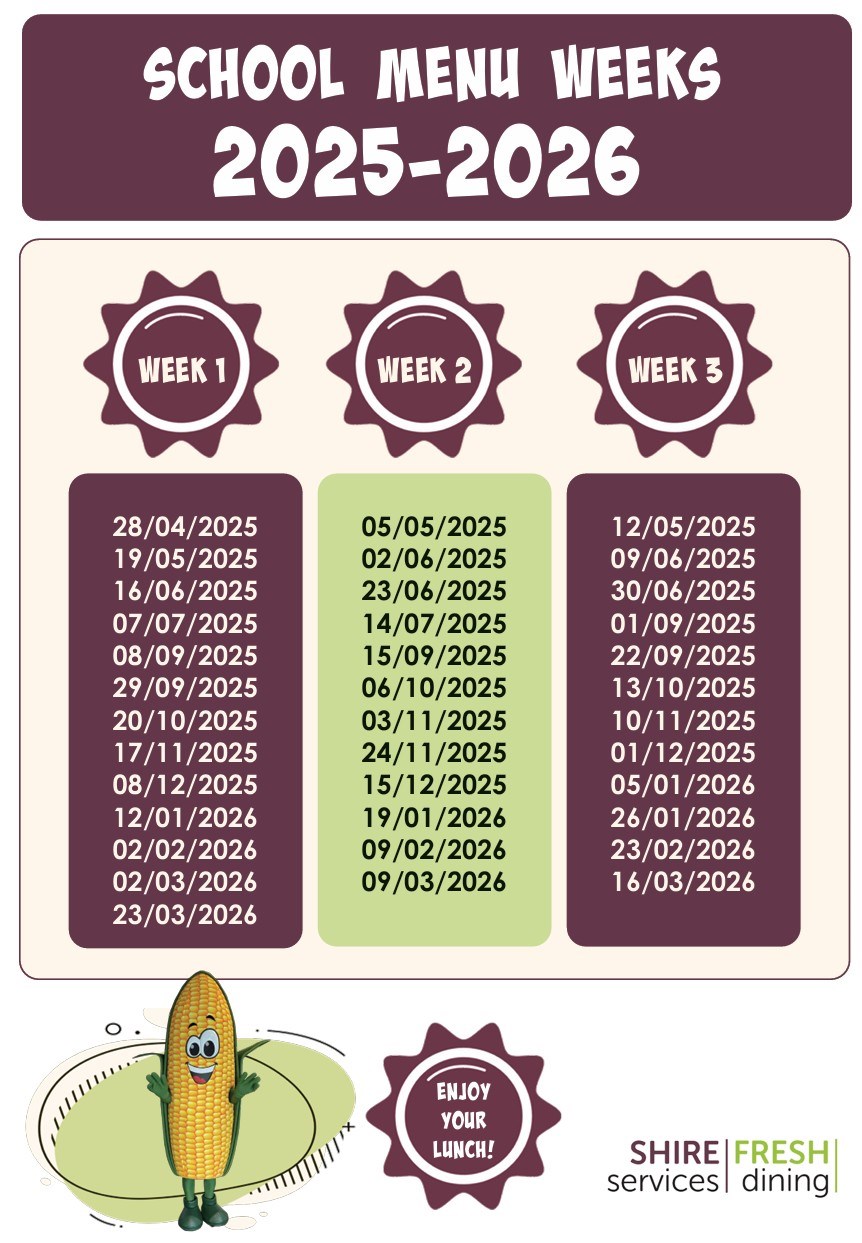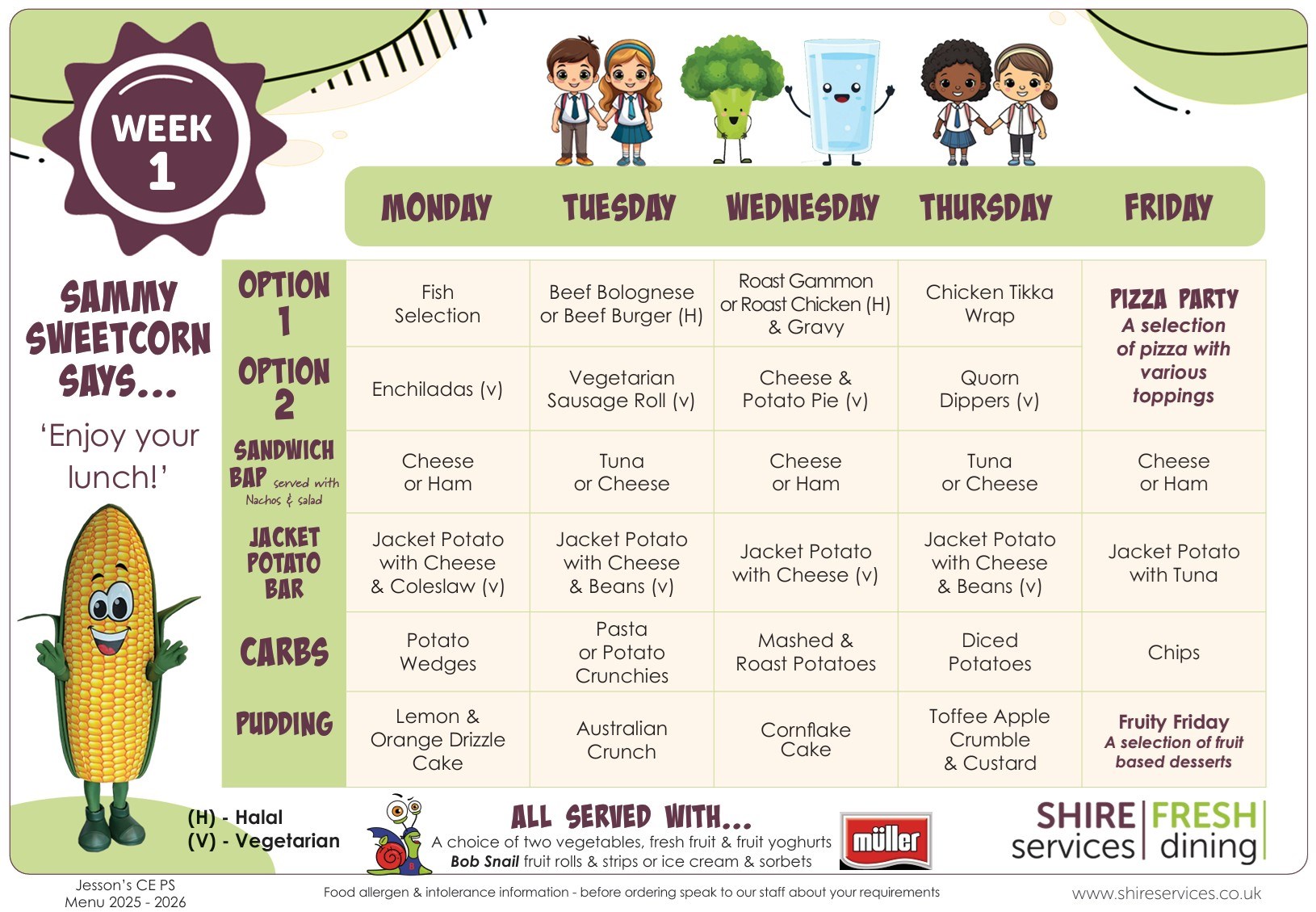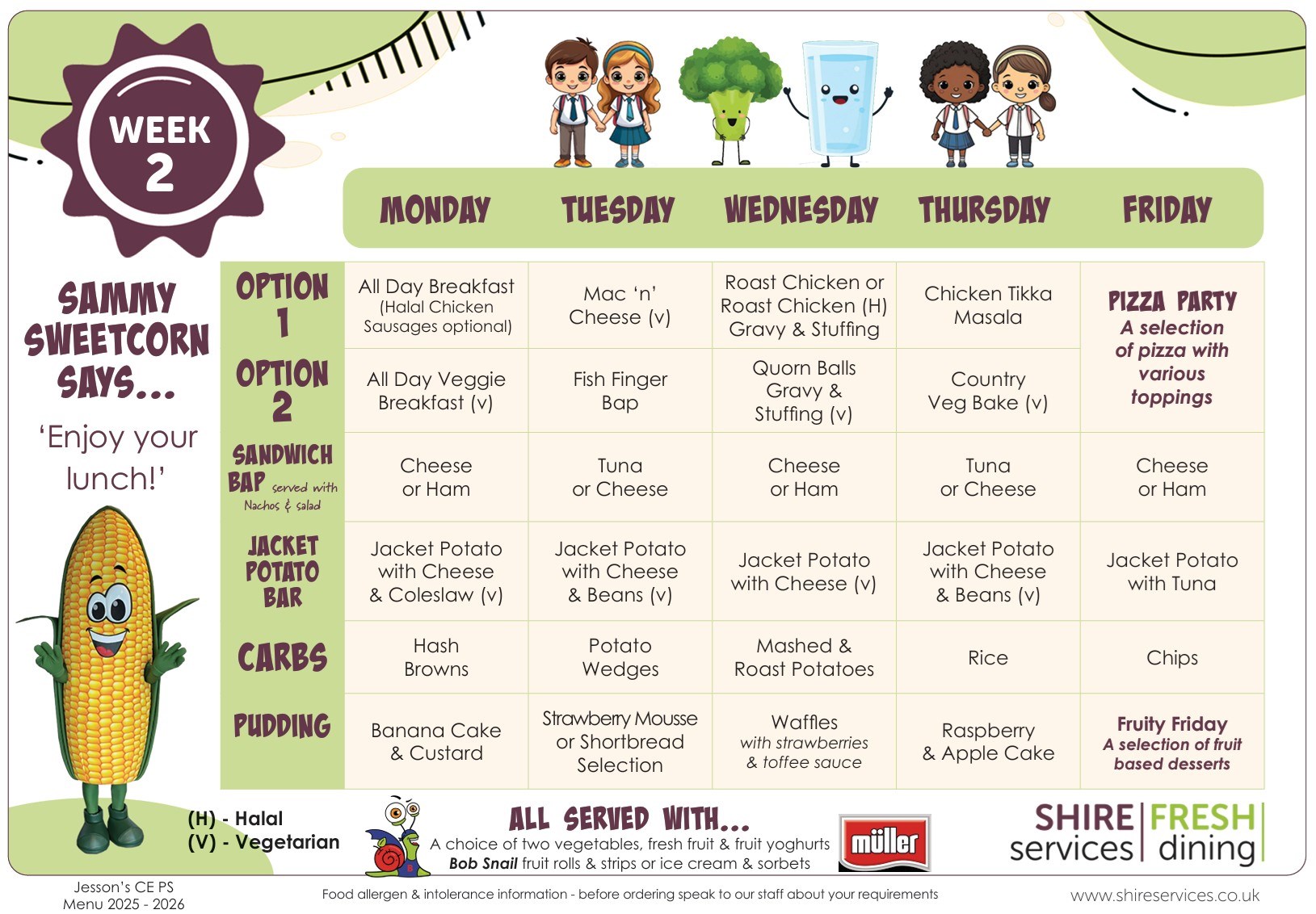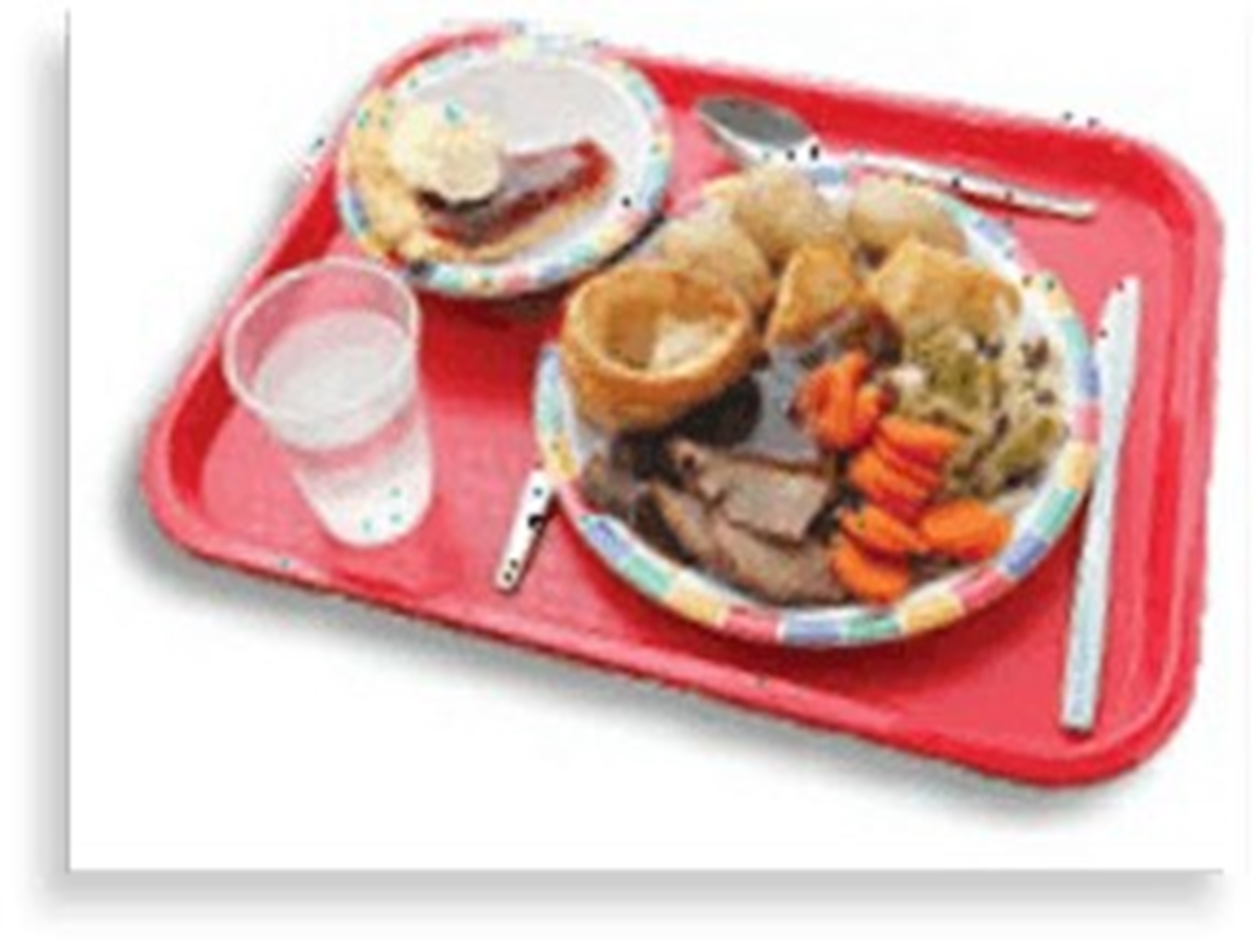School Meals
School Meals/Catering
Good health is important for everyone. The Government wants to secure, maintain and improve children’s and young people’s health. One of the ways it is doing that is by setting minimum national nutritional standards for lunches for pupils in schools. A varied and balanced diet is an important way of protecting health and promoting proper growth and development. In the short term, it can help children and young people to improve their concentration and fulfil their potential both inside and outside school. It helps to minimise some health risks such as anaemia and dental decay. A good diet in childhood can also help to prevent ill health later in life. Unhealthy diets, which include too many fatty foods, too much salt, and not enough vegetables and fruit, are linked to the risk of heart disease, stroke and some cancers.
Shire Services Food Allergy Management
At Shire Services, we are committed to ensuring the safety and well-being of all pupils that we cater for. If you require further information, please follow this link to the Shires website:-
Link to Shire Allergy Management information - external website
Free School Meals
Your child may be able to get free school meals if you get any of the following:
- Income Support
- income-based Jobseeker's Allowance
- income-related Employment and Support Allowance
- support under Part VI of the Immigration and Asylum Act 1999
- the guaranteed element of Pension Credit
- Child Tax Credit (provided you're not also entitled to Working Tax Credit and have an annual gross income of no more than £16,190)
- Working Tax Credit run-on - paid for 4 weeks after you stop qualifying for Working Tax Credit
- Universal Credit - if you apply on or after 1 April 2018 your household income must be less than £7,400 a year (after tax and not including any benefits you get)
- Children who get paid these benefits directly, instead of through a parent or guardian, can also get free school meals.
Infant free school meals in England
Your child will be able to get free school meals if they’re in a government-funded school and in:
- Reception class
- Year 1
- Year 2
Tell your local authority if you also get any of the qualifying benefits. Your child’s school can get extra funding if you do.
Menus









